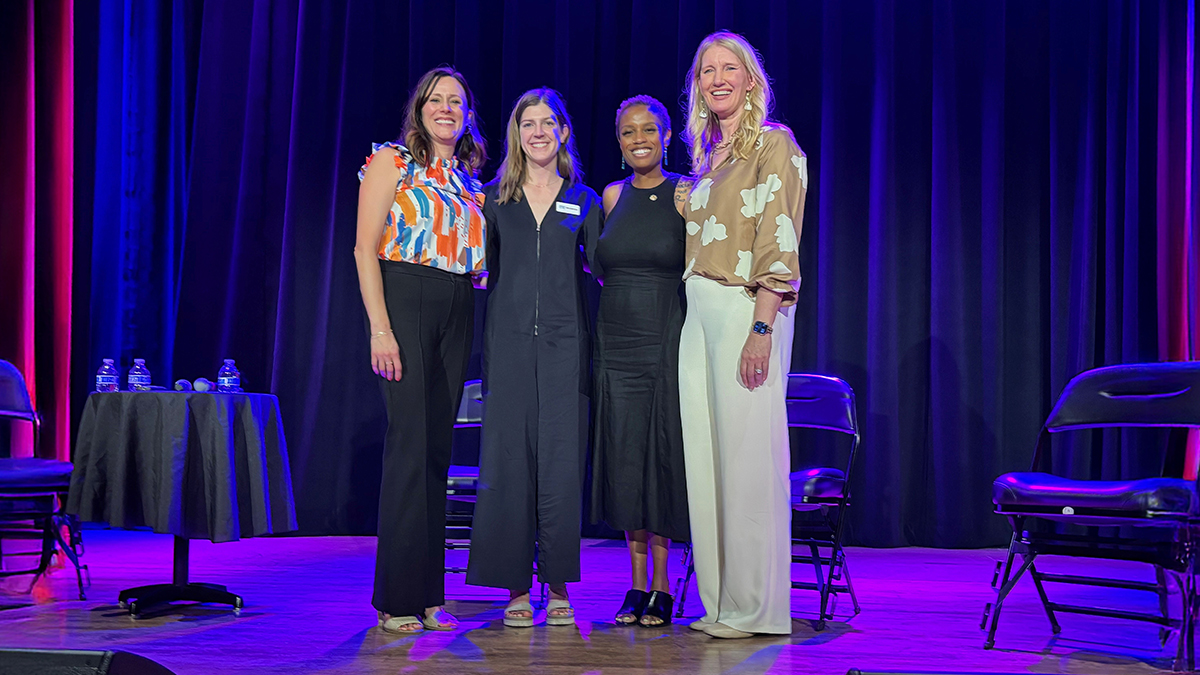
Dr. Ann Anderson Berry has comforted too many grief-stricken families in the aftermath of what should be a joyous occasion: the birth of a new baby.
“It’s profoundly disheartening to stand at the bedside of another family whose baby is dying,” the neonatologist said. “And despite knowing everything I can do in medicine, and everything they’ve done, we’re going to lose that baby. Once is too many.”
A recent Flatwater Free Press story found Nebraska had the fourth-highest infant mortality rate in the nation for babies born to Black mothers. Nebraska ranks 40th in the country for preterm births, according to the March of Dimes.
Averting those worst-case outcomes is what drives Anderson Berry and other Omaha-area community partners to continue their work to improve the health of Nebraska mothers and babies. According to data from the U.S. Centers for Disease Control and Prevention and other health organizations, 80% of pregnancy-related deaths in the United States are preventable.
Flatwater Free Press hosted a Community Conversation event on maternal health in Omaha on Aug. 21. Reporter Sara Gentzler led an hour-long conversation with:
- Anderson Berry, division chief of Neonatology at Children’s Nebraska, executive director at the Child Health Research Institute, vice chair of research for the University of Nebraska Medical Center Department of Pediatrics, and the faculty mentor of two Buffett Early Childhood Institute Graduate Scholars. (The Buffett Institute is currently funding two Graduate Scholar research projects focused on infant cardiovascular health and perinatal health disparities.)
- State Sen. Ashlei Spivey, the founder and executive director of I Be Black Girl
- Kelly Nielsen, the director of the Omaha Pathways Community HUB at the Omaha Community Foundation
“There’s a clear choice and pathway,” Spivey said. “I don’t think what we’re experiencing in Nebraska has to be our reality.”
The three panelists agreed that the pregnant women most at-risk for poor outcomes often suffer from overlapping social and structural challenges, including unstable housing or employment; a lack of parental leave, health insurance, and transportation; and food insecurity.
Handing them a pamphlet about infant safe sleep or healthy eating isn’t enough, Nielsen said.
“When we’re in crisis, we’re not absorbing that information,” she said. “We’re not able to solve those problems on our own.”
Anderson Berry said she wanted the event’s 60-plus attendees to focus on one clear takeaway: “What I would like you to understand is that this isn’t about this mom. It’s not about her choices, what she did or didn’t do. This is not about victim-shaming.”
Two key indicators of community well-being are lifespan and how many babies reach their first birthday, Nielsen said. There’s an economic angle, too: poor maternal outcomes cost the United States billions of dollars in health care costs, lost wages, and social services.
“There’s a moral and economic imperative,” Nielsen said.
Community organizations and programs are working to tackle these issues.
The Pathways Community HUB deploys community health workers who help remove barriers to connect pregnant and postpartum women with medical, behavioral, and social services. I Be Black Girl, among other initiatives, runs a Black doula training program to support Black mothers during labor.
Birth should be joyful, not a source of fear or medical trauma, Spivey said.
The Nebraska Perinatal Quality Improvement Collaborative, of which Anderson Berry is the medical director, was awarded a five-year, $1.375 million grant from the U.S. Centers for Disease Control and Prevention to improve maternal and neonatal outcomes in 2022.
And in 2024, Nebraska expanded postpartum Medicaid coverage, affecting nearly 5,000 mothers.
At the Buffett Institute, professor and project lead Michelle Sarche works on the Colorado PROSPER program, which offers perinatal psychiatry and substance use consultation, resources, and referrals for healthcare clinicians working with people who are pregnant or postpartum.
Sarche, a clinical psychologist by training, has worked for nearly three decades to support Native American child development, parenting, and early care and education programs through research partnerships. Of note is her partnership on the federally funded Center for Indigenous Research Collaborations and Learning in Home Visiting (CIRCLE-HV), which focuses on home visiting programs that support Indigenous families with young children.
At the Flatwater event, the panelists agreed that more awareness of health and birth disparities is needed on the local, state, and national levels.
“We have to talk about it,” Anderson Berry said. “The people of Omaha, the people of Nebraska, can’t care about it if they don’t know about it. Babies are dying. And that’s awful.”
Erin Duffy is the managing editor at the Buffett Early Childhood Institute at the University of Nebraska and writes about early childhood issues that affect children, families, educators, and communities. Previously, she spent more than a decade covering education stories and more for daily newspapers.

